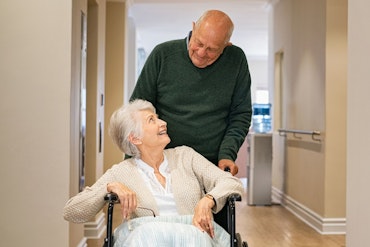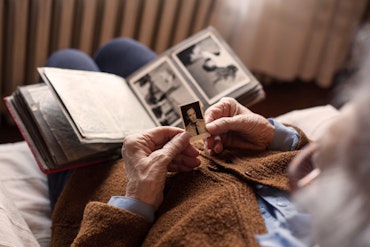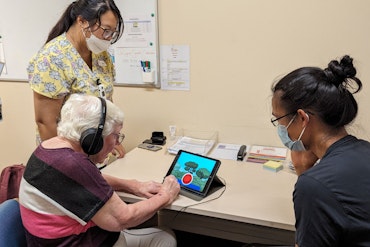Success sees LGBTI dementia training e-course continue
A new short, online and free course aimed at assisting workers across the health and aged care sectors become culturally competent in relation to working with Lesbian Gay Bisexual, Transgender, Intersex and Questioning (LGBTIQ) people with dementia, that kicked off in October, has been welcomed with open arms and positive feedback.

The DTA LGBTI dementia training e-course offers a resource for those caring for LGBTI elders (Source: Shutterstock)
Run by Dementia Training Australia (DTA), the LGBTIQ Dementia Training e-Course offers supported training to assist health and aged care services and organisations to become more inclusive of LGBTIQ people in their service provision.
The first of the ongoing six-week courses, which take just six hours to complete, commenced in October with DTA Director Professor Elizabeth Beattie calling it a success with 166 enrolments and 144 completions of the course.
“The course was developed in response to increased awareness and need for inclusive services for LGBTI people living with dementia,” she says.
“There were a number of key reforms between 2012 and 2014 to ensure that LGBTI people, who have historically been stigmatised and marginalised, were understood and respected and their needs met.
“We recognised a gap in marketplace for this kind of education and training and responded by developing this course and other resources specifically for LGBTI people with dementia.”
Following the initial course, Professor Beattie says the course will now be run each month back-to-back, and alongside a number of other courses as part of their Federal Government funding to provide dementia education and training across Australia.
“We are currently running a national workshop series on Dementia in Diverse Groups,” she says.
“This aspect of our work recognises that different groups of people with dementia have different and unique needs.
“The workshops are aimed at health professionals who work with people from diverse groups who are living with dementia.
“The groups are; people with Younger Onset Dementia, veterans, people who are homeless, people who identify as LGBTI, and people from culturally and linguistically diverse (CALD) and Aboriginal and Torres Strait Islander backgrounds.
“Our workshops are being filled quickly, and we believe there is great need for this kind of training among health professionals.”
Director Celebrate Ageing Catherine Barrett works closely with LGBTIQ elders and says the offer of online training makes an important contribution towards achieving LGBTIQ inclusive aged care services.
“We need to understand the perspectives of LGBTI elders, their historical experiences, their fears of aged care and how dementia can impact on their lives,” she says.
“This resource is one of many steps we need to take towards LGBTI inclusive aged care.
“I would encourage every aged care service to review this resource – LGBTI inclusive aged care is core business.”























